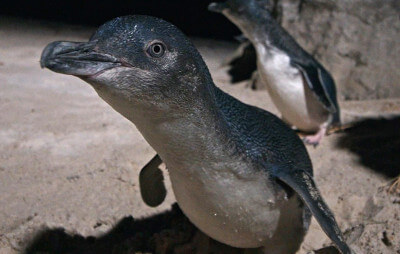The 2024 survey sites include:
- Barunguba – Montague Island, Narooma
- Broughton Island, Port Stephens
- Big Island, Port Kembla
- Brush Island, Bawley Point
- Snapper Island, Batemans Bay
- Cabbage Tree Island, Port Stephens
- Lion Island, Broken Bay
- Manly.
Counting little penguins across a broader range of sites will give us a better understanding of the little penguin population and their breeding habitats. This will also enable our scientists to:
- monitor population changes more accurately over time
- improve on assessing the impact of environmental changes
- better inform conservation strategies to protect this species.
Thanks to our dedicated volunteers, local councils, and partner organisations who have contributed their time and expertise to make this year’s count a success.
To learn more about The Great Big Little Penguin Count and our ongoing conservation efforts, visit the Seabirds to Seascapes webpage.
2023 inaugural Great Big Little Penguin Count
Undertaken in 2023, the first ever Great Big Little Penguin Count provided scientists from the Department of Climate Change, Energy, the Environment and Water with a baseline from which to measure changes to the population, assess future trends and help protect this iconic seabird.
Understanding how the little penguin population is faring along our coasts also gives us a valuable tool to gauge the health of our marine environment.
In 2023, surveys were conducted on:
- Barunguba – Montague Island, Narooma
- Bowen Island, Jervis Bay.
- Broughton Island, Port Stephens
- Tollgate and Snapper islands, Batemans Bay
Bowen Island is part of Booderee National Park, a Commonwealth reserve which is owned by the Wreck Bay Aboriginal Community.
Future surveys will be expanded to include additional islands, enhancing our understanding of the species' status across various breeding sites in New South Wales.
Many thanks to the trained volunteers, Parks Australia and Eurobodalla Council staff who assisted with this year’s Great Big Little Penguin Count.
Seabirds to Seascapes, funded by the NSW Environmental Trust, is supported by project partners the Department of Climate Change, Energy, the Environment and Water, the Sydney Institute of Marine Science, Taronga Conservation Society Australia and the NSW National Parks and Wildlife Service.

Little penguin (Eudyptula minor)